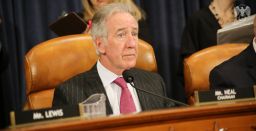Editor’s Note: Rep. Nita M. Lowey, a Democrat, represents New York’s 17th District and is chairwoman of the House Appropriations Committee. Rep. Richard E. Neal, a Democrat, represents Massachusetts’ 1st District and is chairman of the House Ways and Means Committee. The opinions expressed in this commentary are those of the authors; view more opinion on CNN.
The coronavirus pandemic has plunged America’s already struggling child care system into a state of heightened crisis.
Even before the pandemic, millions of parents could not find quality, affordable child care that matched their work hours or their ZIP codes.
Long waitlists for a child care slot were routine. Now, across the United States, the pandemic has created significantly greater challenges for American families to secure safe, accessible care for their children with facility closures, reduced capacity, and new financial strains on programs, providers, staff and parents.


In an April survey of more than 5,000 providers by the National Association for the Education of Young Children, nearly half reported that they were completely closed. The Center for American Progress (CAP) estimates that without adequate federal support, the coronavirus pandemic could permanently eliminate 4.5 million child care spots – nearly 50% of US child care capacity, which was already far below our country’s needs.
People simply cannot return to their jobs if they’re unable to find care for their children. For the economy to reopen fully, Congress must provide meaningful, robust child care relief for families and providers.
That is why we introduced the Child Care for Economic Recovery Act, legislation that addresses the most pressing needs of millions of working parents and families, like those we represent in New York and Massachusetts. The legislation builds on congressional efforts to address the varied needs now being recognized in the child care space, including stabilizing the child care sector through the Child Care is Essential Act, and improving child care facilities for the health and safety of children.
To ease the untenable bind facing American families, our legislation would more than triple guaranteed federal child care funding from $2.9 billion a year to $10 billion a year for the next five years, with state match requirements for the increase temporarily suspended, to help more low- and middle-income families afford care.
This funding would both support work and reduce disparities in child care accessibility and the education opportunity gap, and the multiyear funding would provide employers and workers with certainty and stability during the economic recovery.
Our bill also includes a landmark $10 billion for grants to states to help assess long-term structural challenges child care facilities face, and make essential adaptations, reconfigurations and expansions in response to coronavirus.
The legislation would specifically support essential workers, with $850 million in Social Services Block Grant funding – until September 30, 2021 – to states in consultation with the states’ lead child care agencies for fast funding to support child care – and adult day care for adults who can’t care for themselves – for those who have had to be on the job during this crisis and need support to keep their families healthy and safe while they help their communities.
Recognizing several states have deemed child care workers essential, our bill goes further to make this recognition at the federal level for all child care workers.
Child care is not a luxury – it’s a necessity, which is why our bill makes the Child and Dependent Care Tax Credit fully refundable for the first time, so that it is fully accessible to the families who need it most. And our bill goes further to double the amount of qualified child and dependent care expenses to $6,000 for one qualifying individual and $12,000 for two or more qualifying individuals.
It would also provide a refundable credit to child care providers to cover rent, mortgage and utility costs and a refundable credit for employers to reimburse their employees’ child and dependent care costs.
Moreover, the legislation would enable employers to permit employees to carry over their dependent care flexible spending account contributions to next year. And it would expand the employee retention tax credit to help employers of domestic workers retain those employees.
The provisions in our bill are not just good for families – they are critical to sustaining an equitable economic recovery.
Until Congress acts, the economic crisis will persist, and families and businesses will suffer. As schools navigate reopening while operating remotely, the learning opportunities and healthy development young children access in quality child care settings is made all the more crucial.
While congressional Republicans are urging a wait-and-see approach to the coronavirus pandemic and the ensuing economic collapse, we hear directly from families and providers who are struggling under the weight of the pandemic and can’t survive without additional relief from the federal government.
As the chairs of the House Committees on Appropriations and Ways and Means, we are committed to delivering meaningful relief to American workers and families during this time of widespread need and uncertainty.
The Child Care for Economic Recovery Act is a necessity for child care providers struggling financially from coronavirus, for families who need to return to work while ensuring their children are well-cared for, and for the US economy, which depends on a fully engaged workforce and strong investments in our future through quality early childhood education.

